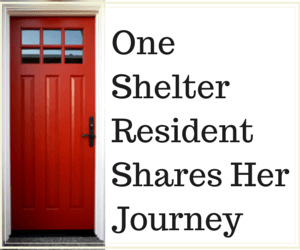Our family clients receive three home-cooked meals every day at The Family Shelter. For some, this may be the first time they have been able to enjoy a family-style meal in years.

But cooking for 30 people – sometimes more – can be challenging.
And we would love your help with this!
What We Need: Groups / individuals willing to provide cooked meals on weekends at the shelter. You can either cook meals in advance and deliver them, or prepare the meal and share it with families at the shelter.
How often: You can provide a weekend meal quarterly, monthly, or even weekly. Let us know what works best for you!
Logistics: Plan on cooking for 30 – 40 people. Lunch is served at 11:45 a.m. and dinner at 5:30 p.m.
Youth groups are welcome! This is a great community service opportunity.

Would you like to donate or cook a meal for The Interfaith Family Shelter?
Please call the Shelter at (425) 303-9774 ext. 206 or fill out this form.
![An Interfaith Gathering]()

[highlight]enNoble (v):[/highlight] enhance; dignify; elevate, raise; honor
[lead]Let’s work together to find solutions to poverty and homelessness.[/lead][lead] Check back each month for new ways to get involved.[/lead] Why enNoble? Learn More
Finding Solutions to Poverty and Homelessness: An Interfaith Gathering
On January 15th, we hosted an interfaith gathering of faith leaders.
Strong, compassionate collaboration among faith groups and the community are powerful forces for addressing homelessness. This belief is core to the work of our organization. This was the impetus behind our decision to organize this event. An interfaith gathering of this type hasn’t occurred in our county in many years.
The response was clear: there is a desire for more interfaith collaboration in our community.
The gathering drew a larger and more varied group than we originally expected. This fostered a lively and productive conversation. Based on the response, there is clearly a need to communicate more easily and effectively among faith groups. We need a way to support each other in the work that we do, and also a way to communicate so that we can avoid duplicating services.
So what’s next?
Our goal for this gathering was not just to talk, but to initiate action. Here are some key needs that were identified–and some ways you can help!
- Identified Need: A revised community meals list. Coordination so meals are spread more evenly throughout the week.
- ACTION: Tell Us About Your Community Meal. If you host a community meal and we haven’t already spoken to you about this, please contact our admin office.
- Identified Need: More ways for faith leaders to gather and connect.
- ACTION: If we didn’t reach out to you about the meeting in January, we’d love to hear from you now. Contact Mary Ellen at our admin office if you have any ideas for gatherings or are interested in learning about future opportunities.
- Identified Need: Stronger communication and resource sharing in order to best help people in crisis.
- ACTION: Church secretaries- we want to hear from you! Faith group secretaries/office administrators are on the front lines when it comes to meeting the needs of low-income and homeless persons who approach congregations seeking assistance. Please take a minute to tell us what you need in order to best serve people in crisis.
Church secretaries/administrators: What do you need in order to best serve people in crisis?
[contact-form-7 id=”2020″ title=”What do you need in order to best serve people in crisis?”]

Dear Friends and Supporters,
Happy new year! As I write this letter I find my eyes drawn to my 2015 calendar. I decided that a few quotations from that would easily set a positive tone for our new year. The calendar is all about change, which is one of the few constants in life.
Blessings to all. Call me! Let’s have that cup of coffee or tea. Much creativity abounds for conversation and action.
INSPIRATION FOR A NEW YEAR
~“When we are no longer able to change a situation, we are challenged to change ourselves.” -Victor Frankl
~“When one door of happiness closes, another opens; but often we look so long at the closed door that we do not see the one which has been opened for us.” -Helen Keller
~“A pessimist sees the difficulty in every opportunity; an optimist sees the opportunity in every difficulty.” -Winston Churchill
~“When a great moment knocks on the door of your life, it is often no louder than the beating of your heart, and it is very easy to miss it.” -Boris Pasternak.
With gratitude,
Mary Ellen
see what else is new at Interfaith

*Names have been changed
 If Jessica could tell people one thing about being homeless, it would be this: “It’s actually pretty expensive.”
If Jessica could tell people one thing about being homeless, it would be this: “It’s actually pretty expensive.”
When you live in your car, as she did on and off, things can add up in unexpected ways. Batteries for flashlights run out quickly and need to be replenished. Food that can be eaten without any preparation is expensive. And then there’s the cost of keeping gas in your tank, which depletes much more quickly in the winter when you have to turn on your car to keep warm at night.
“More than once, I got stuck. I got cold in the middle of the night, so I turned the car on to keep warm. When I woke up, I was out of gas.”
Jessica found herself homeless a little over a year ago. At the time, she and her boyfriend were living with their one-year-old son at her boyfriend’s parents’ house. The couple was underemployed and struggling to make ends meet. She doesn’t elaborate on the reasons she was kicked out of their house other than to say, “My boyfriend’s parents never liked me.”
Jessica left, but her boyfriend and their son stayed. She bounced from couch to couch or stayed in her car. She saw her son every other week, during visits with her mother. She wasn’t welcome to stay at her mother’s house during the times when she didn’t have her son. “We’ve never gotten along.”
After she lost her housing, things went from bad to worse. She lost her job and soon afterward found herself unexpectedly pregnant. Homeless and expecting a baby, she stopped looking for work. “Who’d hire me like this?” She points to her belly.
When she moved into The Family Shelter, she was thankful not to have to stay in her car through another winter. She quickly found her place at the shelter, planning the communal meals and pitching in to shop for groceries when staff cannot. Her son alternates staying with her and with his father.
But Jessica doesn’t sugar coat her situation. Moving into the shelter was a step in the right direction. She is safe, more stable. She has a place to keep her belongings. a cupboard and fridge space, a door to lock and a warm bed. She has a case manager to help her find housing. But she is quick to point out that she is still homeless, and being homeless is not where she thought she’d ever be.
“Not a lot of people know I’m here. I know it’s a step in the right direction, but its embarrassing.” Her voice trails off and she looks away.
When asked what she is looking forward to most about moving into permanent housing, she grows quiet. After awhile she says simply, “I want my family back together.”
see what else is new at Interfaith
Shelter Coordinator – The Family Shelter
Hours: 20 hrs/ 4 or 5 days per week
Compensation: Min. $15.50/hr, DOE, paid vacation and sick leave. No medical benefits.
Reports to: Shelter Director.
Description: Coordinates the daily operations of The Family Shelter.
Prerequisite Qualities: Ability to take initiative, work independently, creatively problem solve, contribute to strong teamwork, communicate openly, and combine compassion and accountability. Integrity and trustworthiness are expected and highly valued.
Qualifications: Excellent organizational, time management, and verbal and written communication skills; ability to appreciate and work with people in crisis; demonstrated experience in use of computer software for various administrative purposes; experience working with vulnerable populations; valid Washington drivers license; personal vehicle adequately insured; ability to lift up to 50 lbs and move actively around shelter facility including stairs; Bachelor’s Degree preferred or equivalent of education and work experience.
Major duties and responsibilities:
- Plan weekly menus w/recipes as needed, assuring that necessary food is available.
- Maintain systems for data collection re: volunteers, donations and meals.
- Maintain a current inventory of food and supplies for the shelter. Shop as needed.
- Clearly describe and assign household chores to shelter residents.
- Monitor household chores completion and address any difficulties
- Maintain overall cleanliness of the shelter. Perform regular room checks.
- Receive, record and allocate all in-kind donations.
- Recruit, train and schedule volunteers at shelter. Within these responsibilities, delegate duties as needed in consultation with Shelter Director.
- Maintain open communication with staff and volunteers.
Need to clear Washington State Patrol check. Need for own transportation and proof of car insurance.
To Apply: Send resume and cover letter to: execdir@interfaithwa.org or PO Box 12824 Everett, WA 98206
No calls accepted. Incomplete applications will not be reviewed.
Application closes: 5pm, February 26th, 2015
[lead]Ninety six shelters.[/lead] Misty still remembers the number of unsuccessful calls she made looking for a place to house her family of seven. It was the middle of winter and they were running out of time.
Call after call brought more bad news. Most shelters were full to capacity. The few that had space available didn’t accept two-parent households, as is the case for the majority of family shelters. Misty could stay with their three girls, but her husband, David, would have to take their teenage boys to an adult men’s shelter. For their close-knit family, that was unthinkable. “Keeping our family together has always been our first priority.”
[lead]Staying afloat with a family of seven on David’s salary,[/lead] while Misty stayed at home with the children, had long been difficult. “We were always over our heads with rent,” remembers David. But when he began having lung problems from years as a welder, then got laid off in the bad economy, their bills became unmanageable. David had trouble finding another job he could do given his new health problems. Misty, having long been out of the workforce and without a high school diploma, found it difficult to get work.
[blockquote size=”full|half|third|fourth|two-thirds|three-fourths” align=”left|right” byline=””]The minute you say ‘shelter,’ people look at you like something’s wrong. How did I end up here? Why do I always end up here? As a parent, you feel like a failure. But the staff helped me see I’m not a failure. I’ve made mistakes, but they aren’t unfixable. Our situation isn’t unchangeable.[/blockquote]
No longer able to afford their rent, they spent the next six years bouncing around, staying with family and friends, in hotels and RV parks. In mid-2011, they started staying with family in Everett, but after six months were told they had to move on. They had run out of options.
[lead]On the day they learned The Family Shelter had a room for them,[/lead] they had only enough money for one night’s stay in a hotel. The next night, without a shelter placement, the family would have been forced to stay in their van.
“My kids (by then, all teenagers) had ideas of shelters as blankets, dividers, cots. At the intake interview, they grilled (the staff) about what it was like there,” says David. The family would have their own room. There were activities and outings. They were pleasantly surprised. “Within a day, they’d met friends and fit in.”
[lead]Although they would never have chosen homelessness[/lead] for their family, Misty and David count their blessings where they can. They took advantage of their time at the shelter and made changes long overdue. They participated in life skills classes on everything from renter’s rights, to couple’s communication. They worked with their case manager to develop a budget that they use to this day. They shop smarter and eat healthier than they did before their shelter stay. Their children’s grades have improved. Misty even earned her GED, a long time goal.
“We learned structure for a lot of things,” says Misty. “Rent, power, then anything else. (Shelter director) Jackie hammered that into us. We don’t get that flood of late notices anymore.”
[lead]They also recognize the valuable skills their children gained,[/lead] like resilience, a well-rounded perspective and the importance of not taking their situation for granted. “We owe our kids a lot. They adapted. They’ve been the best.” Their oldest daughter even recently returned to the shelter as a volunteer for Children’s Learning Hour.
“The minute you say “shelter,” people look at you like something’s wrong,” David says, his voice growing quiet. “How did I end up here? Why do I always end up here? As a parent, you feel like a failure. But the staff helped me see I’m not a failure. I’ve made mistakes, but they aren’t unfixable. Our situation isn’t unchangeable.”
The first thing Misty and David did when they left the shelter and moved into their transitional housing apartment? They made a five year plan. It wasn’t a requirement of any program, but something the couple knew they needed to do in order to keep making progress.
[lead]Two years later, [/lead]they are steadily checking off their goals. They’ll soon move into a permanent apartment with a federally subsidized voucher. They’ve nearly met their goal of getting off of food stamps. And, through Housing Hope’s Team Homebuilding, a sweat equity program, they even have their sights set on owning a home – something they can pass on to their children.






